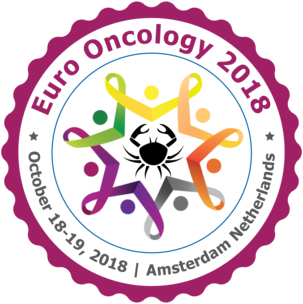
Mohammed Hassan
University of the Western Cape, South Africa
Title: SURVIVAL ANALYSIS AND CHARACTERIZATION OF ATP BINDING CASSETTE (ABC) DRUG TRANSPORTERS AND THIER ROLE IN BREAST CANCER CHEMOTHERAPY TREATMENT USING IN-SILICO APPROCH
Biography
Biography: Mohammed Hassan
Abstract
Breast cancer is the most common and invasive solid tumour occurring in women across the world, with 1.67 million new cases reported in 2012, resulting to 324,000 deaths in South Africa (WHO, 2012). The rate of breast cancer patients has highly increased as well as the survival rate. This is due to the improvement of cancer treatments and usage of new technology. Tamoxifen has been widely used for the treatment of breast cancer patient around the world. Previous studies have shown that Tamoxifen is a substrate for ATP-binding cassette transporter proteins (ABC) drug transporters. However, ABC drug transporters in breast cancer treatment with Tamoxifen appears to be associated with poor clinical outcomes insome population groups, thus resistance developed to this medication by these peoples. It demonstrates that ABC transporters are crucial receptors for an effective management of chemotherapy resistance of breast cancer patients being treated with tamoxifen. Therefore, there is a need to understand the genetic diversity of ABC transporters in different populations so that we can give Tamoxifen to the right population group. In this study, we focus on profiling the ABC drug transporters associeted to Tamoxifen resistance and characterise their role in breast cancer treatment poor prognosis, mortality rate and the survival rates using in-silico methods.SurvExpess and Kaplan Meier plot (KM plot) as a bioinformatics tools used for survival analysis in this study to test whether ABC transporters down-regulated or up-regulated after using the chemotherapy treatment. KM plot is freely accessbile database used to study the survival analysis. Therefore, a certain criteria was set to study the reoccurrence free survival (RFS) rate for breast cancer patients. Restrictions for all patients were set as default for all (ER, PR, HER2, lymph node, intrinsic subtype, and TP53 status). Quality control was checked to remove redundant samples and to exclude the biased arrays and the proportional hazard assumption was zero and not selected. Survival analysis ran for number of 3166 samples. Result obtained was showing up-regulation for ABCB10 gene expression and the reoccurrence free survival analysis was calculated by P value of 0.00016. In conclusion, the high expression of ABC genes associated with effluxing of Tamoxifen leading to ineffective therapeutic intervention in breast cancer leading to poor prognosis as well as poor survival rate and increased mortality rates. Gene therapy and gene splicing of ABC transporters it would be possible to down-regulate the gene expression of ABC genes in post treatment thus would be possibility of blocking ABC genes from effluxing of neither chemotherapy nor developing multidrug resistance to chemotherapy.

